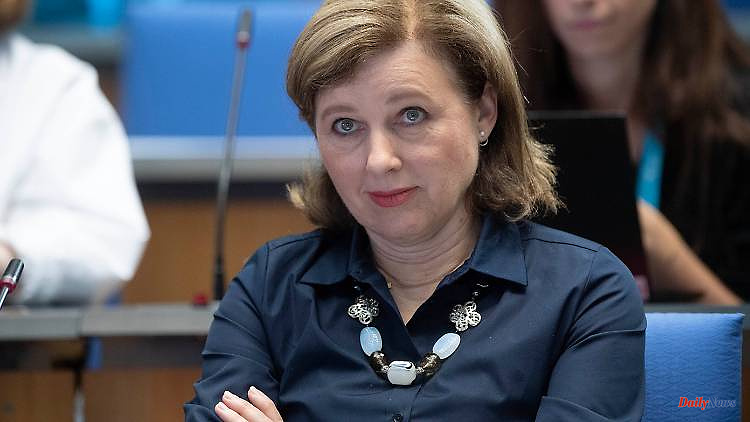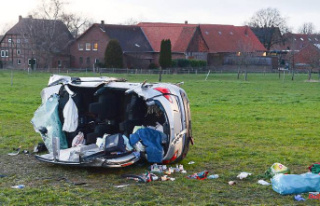Brussels is planning a European media regulator to prevent disinformation online. Such a body meets with little enthusiasm in Germany. The Association of Publishers sees this as an encroachment on freedom of the press. And asks why the EU makes itself the supervisor here.
The European Commission wants to create Europe-wide media supervision and limit government influence on the press and broadcasting. According to a draft law presented in Brussels, a new European media council is to be established. The body of representatives of the member states is intended, among other things, to prevent excessive concentration in the industry. German publishers warned against "interventions in the freedom of the press".
Internal Market Commissioner Thierry Breton stressed that Brussels does not want to take control of media groups in Europe. Rather, it is about "protection at EU level to ensure diversity and to protect private or public media from interference". Vera Jourova, Vice President of the Commission responsible for Values, warned that there should be no "propaganda channels for governments" in Europe. In Hungary and Poland in particular, the EU Commission sees freedom of the press as being threatened by government interference.
According to the 67-page draft law, the new media council should act in close coordination with the EU Commission and also write reports for Brussels. Decisions should be made with a two-thirds majority. In questions of media concentration, however, the respective national supervisors have the last word, emphasized Internal Market Commissioner Breton.
Sharp criticism comes from Germany: The Federal Association of Digital Publishers and Newspaper Publishers (BDZV) and the Media Association of the Free Press (MVFP) called on the member states and the EU Parliament to "fundamentally revise the Commission proposal and prevent interference with press freedom".
The industry associations accuse the EU Commission of "de facto overriding" the editorial freedom of publishers with its proposal and opening the floodgates to "political appropriation of the media". They also fundamentally doubted that it would be necessary to transfer control competences in the media sector to an EU authority. The reason is "not apparent," they explained.
Vice-commission head Jourova rejected the criticism. "We want to destroy non-functioning systems in the member states," she assured. Public broadcasting, for example, seems "very robust" in Germany, even if ARD is still planning improvements.
The organization Reporters Without Borders (RoG) is hoping for "significant progress for media freedom and the maintenance of democracy and the rule of law in the EU", as its director general Christophe Deloire explained. The planned law guarantees diversity of opinion, the independence of the media and the protection of sources. According to the RoG, however, the guidelines against disinformation on the Internet are not yet fully developed.
The European umbrella organizations of newspaper and magazine publishers, on the other hand, warned against a "law on media freedom" with excessively strict conditions for media groups. The European Magazine Media Association (EMMA) and the European Newspaper Publishers Association (ENPA) emphasized that this makes necessary investments more difficult.
The draft law is now going to the European Parliament and the member states for deliberations. Change requests are to be expected there. Once approved, the regulation would apply immediately in the 27 EU countries.












